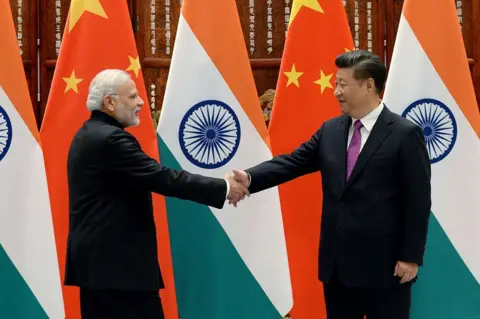Friedrich Merz, leader of the Christian Democratic Union (CDU), is set to be sworn in as Germany's new Chancellor, following the approval of a coalition agreement aimed at resolving months of political uncertainty after the collapse of the previous government. At 69, Merz’s ascent comes as he emphasizes his responsibility to steer the country towards success, with aims to bolster Germany’s economy and establish its standing on the international stage.
The newly formed coalition, comprising the CDU, CSU, and the Social Democrats (SPD), holds a slender majority in parliament, raising concerns especially after the SPD suffered its most significant electoral defeat in post-war history. With only 328 seats secured, Merz must navigate a challenging legislative landscape, where he will need to win over a skeptical public to justify increased spending on defense amidst a shifting global context.
Merz has already indicated his intentions to reform immigration policies, invest in the nation’s dilapidated infrastructure, and restore vital relationships with key European allies. His recent decision to exempt Germany’s defense and security budget from strict debt rules is perceived as a critical step, but requires broader societal acceptance due to the contentious nature of increased military expenditure.
The political arena in Germany is further complicated by the presence of the far-right Alternative für Deutschland (AfD), now the main opposition party, which champions stringent anti-immigration policies and seeks to pivot away from support for Ukraine. Their recent classification as an extremist organization by Germany’s domestic intelligence agency has fueled debate about their role in the political discourse, and has prompted legal action from the AfD against the classification.
As Merz prepares to forge ahead with his agenda, he must also maintain relationships with international leaders, balancing Germany's foreign relations with rising geopolitical complexities. His initial diplomatic engagements will focus on strengthening ties with France and Poland, particularly in defense collaboration contrary to the previous government’s perceived inefficiencies.
With an assertive approach towards governance amid an increasingly polarized political environment, Merz faces the challenge of uniting a divided electorate while advancing Germany’s role on the European and global stage.





















